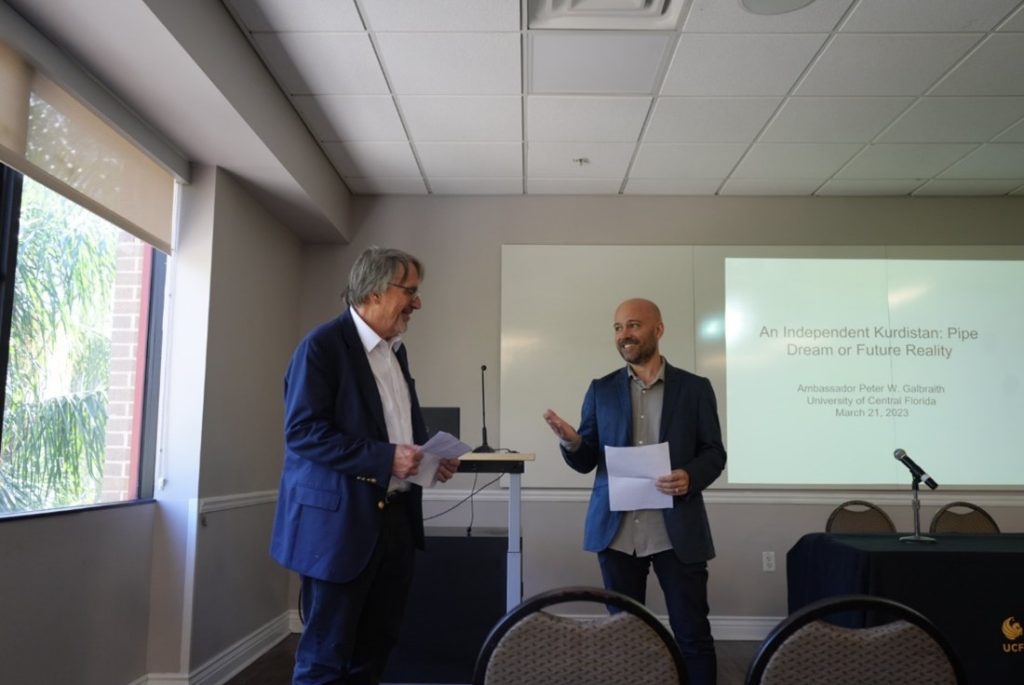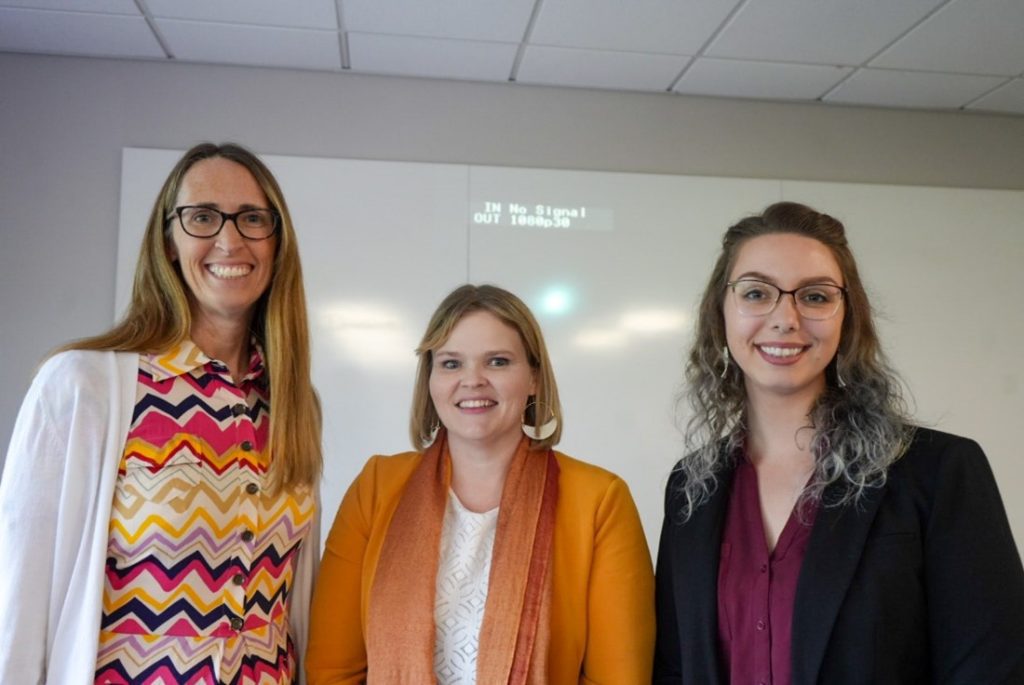Celebrating Newroz – Kurdish New Year – at UCF
In celebration of Newroz, Kurdish New Year, Kurdish Political Studies Program (KPSP) organized two events on Tuesday, March 21, 2023.
The first event featured a talk by Ambassador Peter W. Galbraith who gave a talk about prospects of independence of Iraqi Kurdistan. He served as the first U.S. ambassador to Croatia from 1993 to 1998 before becoming a cabinet member in East Timor for the country’s first transitional government for which he helped negotiate the Timor Sea Treaty. He was appointed as the Assistant Secretary General of the United Nations as Deputy Special Representative for Afghanistan in 2009. For the last two decades, he has served as an informal advisor to the Kurdistan Regional Government in Iraq.

Galbraith asked the question of what makes a Kurdish independence in Iraq more likely? He argued that Kurdistan meets all the four criteria for independence: an ethnic community, a geographically defined area, homogenous population who supports the possible independence of Kurdistan as a majority. The Iraqi Kurds came to independence in June 2014. However, they were discouraged from pursuing it by the U.S. government. Three years later, in September 2017, Iraqi Kurdistan organized an independent referendum when more than 90 percent of the population voted in favor of it, a decision that was met with strong opposition from Iraq, Iran, Turkey, as well as the U.S. While the process was ultimately stalled, the referendum demonstrated how much Kurdish people want an independent state. For Galbraith, the main obstacle remains the division between the two main Kurdish political parties. He quipped that Kurdish people’s greatest friend are the mountains, but their greatest enemy is themselves.
The second event of the day had a panel on archaeology in Kurdistan. The speakers were Petra M. Creamer, Ph.D., assistant professor at Emory University and Tiffany Earley-Spadoni, Ph.D., associate professor of history at UCF. The panel was chaired by Sarah Barber, Ph.D., professor of anthropology at UCF.

Creamer is the director of the excavation and remote sensing project called “Rural Landscapes of Iron Age Imperial Mesopotamia in Iraqi Kurdistan.” She studies the rural-urban interactions during the Assyrian Empire that lasted from 1350 to 609 BCE as part of the Erbil Plain Archaeological Survey (EPAS). During the Iron Age, the Assyrian Empire started massive constructions projects in Nineveh and Erbil making the region an important area to study. In her study, Creamer aims to shed light on how the imperial administration ruled over a highly diverse population and exercise power over rural populations. With the employment of techniques including geo-sensing, it is possible to draw a comprehensive picture of life in Iron Age settlements during the Assyrian imperial period. Creamer will plan to travel to Iraqi Kurdistan to continue her excavations in the field to develop our knowledge of the rural landscape of the Assyrian Empire.
Earley-Spadoni’s talk focused on mid-Bronze Age cities in the Erbil plain that became major urban centers that competed for influence and prominence located along a north-south axis. By the late Bronze-Age, there was an increase of large and stable territories and empires. Her archaeological site is called Kurd Qaburstan that has been investigated since 2013. With the help of magnetometry, around 60 percent of the city has been covered. Kurd Qaburstan, founded in 1800 BCE, provides an ideal site to make sense of urban life in Mesopotamia at this particular stage. It could be the ancient site of Qabra. In 2022, her team excavated a temple and a palace giving an unprecedented view of a Mesopotamian city that make it possible to draw comparisons with other mid-Bronze Age cities. The study of these buildings provides unique insights about the organization of power and social life in ancient Mesopotamia.
